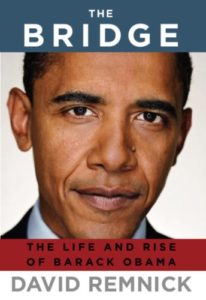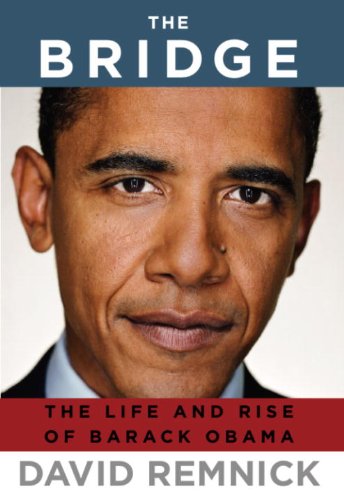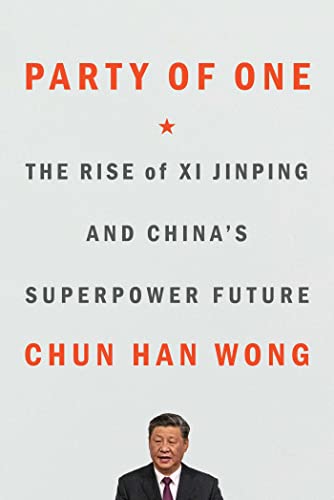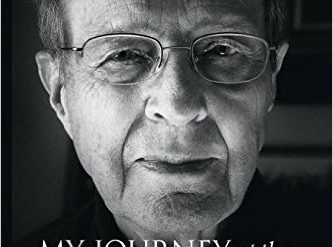
The White House has been home to many colorful characters in the more than two centuries since it was first occupied in 1800—think of the polymath Thomas Jefferson, the swashbuckling Andrew Jackson, and the big game hunter and peacemaker Teddy Roosevelt—but Barack Obama is at least their equal. With a life story no Hollywood screenwriter would dare concoct, President Obama is the avatar of multicultural America. In David Remnick’s formulation, he is “the bridge” between white and black, the elite and the street, and—equally important—between the generation of African-Americans who followed Martin Luther King, Jr., and John Lewis in the civil rights movement, and those who were born too late to have experienced its pains and joys directly.
This is familiar territory to anyone who has dipped even briefly into the flood of writing about Barack Obama, much of it essentially biographical, and David Remnick brings few new insights to the story. However, what he brings is the fruit of hundreds of interviews with Obama himself, his closest aides and advisers, as well as others in the media and academia who can help cast light on the workings of the President’s mind. This is historical perspective before the historians have gotten into the act.
The Bridge: The Life and Rise of Barack Obama by David Remnick ★★★★☆
The special emphasis in this book is race. Remnick follows the threads of Obama’s own journey of self-discovery and his sometimes-troubled interaction with others, especially older leaders, in Chicago’s African-American populous diaspora, and he puts Obama’s rise to the presidency in historical perspective as an expression of the black community’s centuries-long struggle for equality in America. To Remnick, Dr. King and his colleagues represented the “Moses generation,” destined to approach the walls of Jericho but never to enter the promised land beyond. Obama embodies the “Joshua generation” that stands on the shoulders of its parents and now seeks to claim the fruits of this historic struggle.
About the author
David Remnick is best known now as editor of The New Yorker for the past dozen years, but in his relatively short life–he’s just a few years older than his subject in The Bridge—he distinguished himself as a reporter, first for the Washington Post and later for the New York Times. He won a Pulitzer for Lenin’s Tomb, the 1993 book based on his years as Moscow correspondent for the Post.
For additional reading
Like to read books about politics and current affairs? Check out Top 10 nonfiction books about politics.
If you enjoy reading nonfiction in general, you might also enjoy:
- Science explained in 10 excellent popular books.
- Great biographies I’ve reviewed: my 10 favorites
- My 10 favorite books about business history
And you can always find my most popular reviews, and the most recent ones, plus a guide to this whole site, on the Home Page.



























